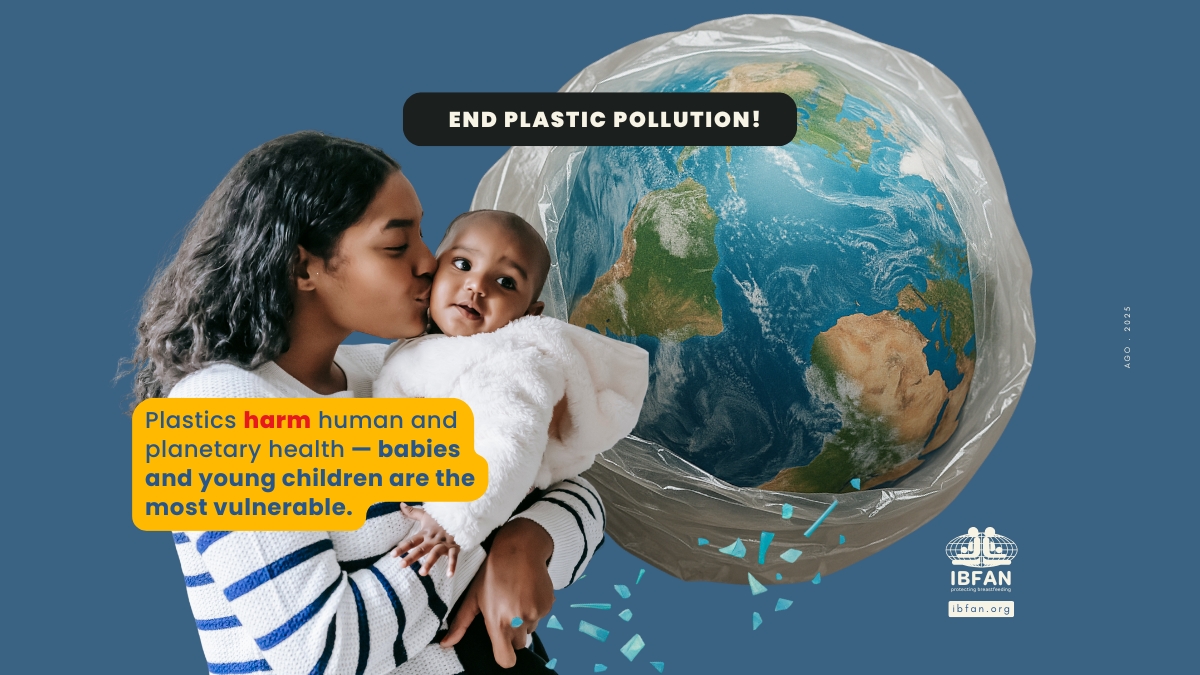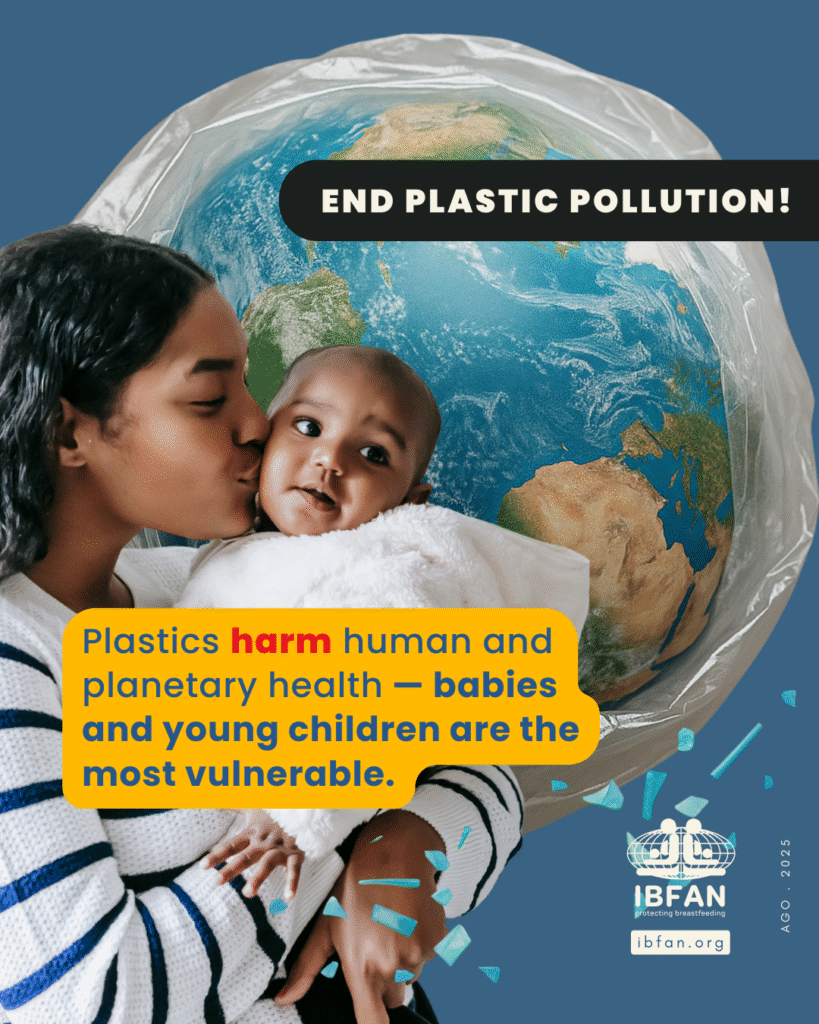
IBFAN calls for urgent action to restrict the production and use of plastics that pollute our planet and damage human health. Tiny plastic particles, known as microplastics, contain toxic chemicals that contaminate soil, water and processed foods. Children are especially vulnerable to these chemicals, even before birth, at a time when exposure can affect the development of their nervous and reproductive systems. Infants and young children are exposed to the harmful effects of these chemicals found in plastics used in infant and young child feeding products and utensils (food contact materials).
In the context of the ongoing UN negotiations in Geneva , IBFAN reinforces the urgency of a global treaty that addresses the impacts of plastic on both human health and the environment.
The aim of this round of negotiations is to advance the development of an international legally binding treaty to tackle plastic pollution, including marine pollution. IBFAN is following the process and highlights the importance of ensuring that the treaty takes into account the health impacts of plastic — especially on babies and young children — and not just on ecosystems.
More information about the INC-5.2 session is available on the official website of the United Nations Environment Programme (UNEP): unep.org/inc-plastic-pollution/session-5.2


